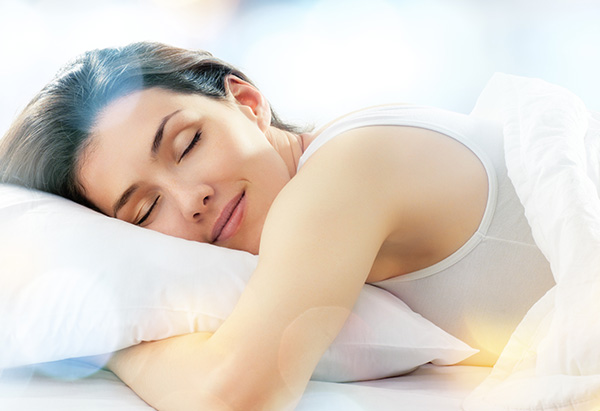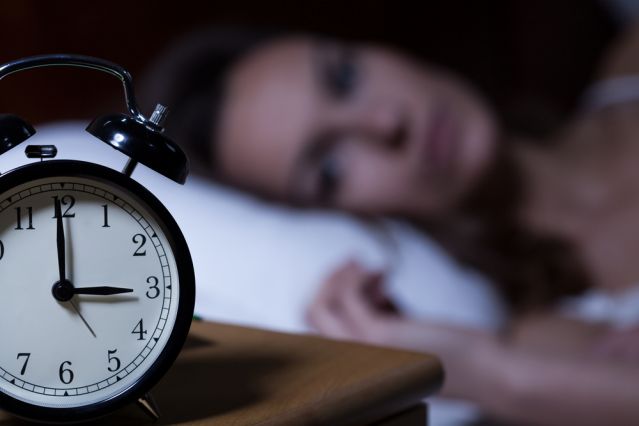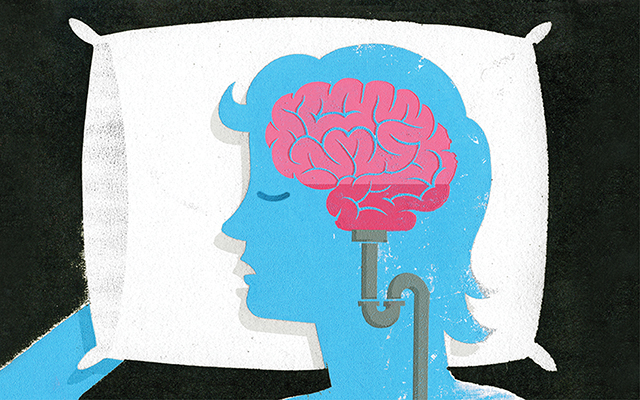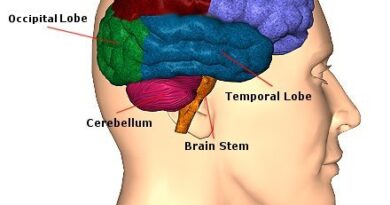Sleep – Restorative of tired Body and Mind
Sleep is one of nature’s greatest inventions and blessings of life. It is a periodic rest of the body which is absolutely essential for its efficient functioning. Sleeping well is an art. It needs a perfect blend of healthy habits and control of mind. A clean body and mind, relaxed mood, physical exercises, and the perfect dietary control are some of the basic sleep inducing methods.

Preparation before sleep
The sleeping place should be well ventilated, with balanced temperature and free from noises. The bed should be neither too hard nor too soft, but comfortable. The pillow should not be too hard or too high. The bed clothes should be loose-fitting and light coloured. Another important rule is not to eat heavy food before bed time.
Benefits of Sleep
Sleep is the indispensable condition to the recuperation of energy. We go to bed fatigued and get up refreshed. Sleep repairs bear and tear of the body and mind incurred during waking hours. Nothing is so restorative to the nerves as sound and uninterrupted sleep.
What happens during Sleep ?
During sleep most of the functions of the body are carried on at the lowest level possible in health. Heat production is from 10-15 percent below the basal level. The mechanism regulating the body temperature are less sensitive than in the waking state and are depressed by 0.5 to 1 degree F. The rate of heart is reduces by 10 to 30 beats per minute and a decline in blood pressure of about 20mm occurs in quiet restful sleep. The urine volume is considerably reduced, but its concentration in solids is increased. The tone of all skeletal muscles is lessened. The eyes are usually rolled upward and the pupils constricted.
What are effects of loss of sleep ?
Unpleasant situations at bed time such as arguments, quarrels, watching a horror movie, listening to loud music which would create anxiety, fear, excitement and worries should be avoided. Such situations stimulate the cerebral cortex and tend to keep one awake.
Loss of sleep exerts seriously detrimental effects upon the nervous system. Long periods of wakefulness may cause profound psychological changes such as loss of memory, irritability, hallucination and even schizophrenic manifestations.

What is difference between Sleep and Rest ?
At rest the body is disturbed by all exterior noises, but in sleep it is screened from them by partial loss of consciousness and also by what is called ‘dream protection’. One useful purpose of the dream is to convert outside noises that might awake the sleeping person, into fantasies that do not disturb him.
During rest the limbs are normal, but in sleep they swell. Blood flows from the brain, distends the arteries, and makes the limbs bigger. In sleep more muscles are relaxed than in rest, though the sleeping person changes his position about 35 times in one night, without knowing it. Many organs which work during rest suspend their activities in sleep. Thus the recouping value of sleep is much more than that of rest or simple lying down.
Theories of Sleep
Many theories of sleep have been advanced to explain the temporary loss of consciousness which we know as sleep. The oldest theory is that sleep is induced by a reduction in the blood supply to the brain or atleast to conscious centres. This is known as ischemic theory. In modern times, the drowsiness after a meal, presumably due to the diversion of blood from the brain to the digestive organs, is cited in support of the ischemic theory.

Other important theory about sleep in the chemical theory. As a result of many experiments in the metabolism of sleeping subjects, it is considered that the fatigue inducing sleep may be a mild form of blood poisoning or toxaemia. This ‘poisoning’ is believed to be brought on by the expenditure of energy during the waking hours.
Another theory places a sleeping centre in the hypothalamus. Many of the bodily changes in sleep such as constriction of pupils, reduced frequency of heart beat, increased gastric tone and secretion are manifestations of the activity of hypothalamus nuclei, especially parasympathetic centres. Perhaps some of the sleeping pills affect this centre in the brain.
Although the various theories have certain amounts of experimental evidence to support them, none has really solved what is the most mysterious process in our lives. All we know is that sleep substitutes constructive measures for the destructive processes of our waking hours. We cannot live without sleep.

How much sleep is sufficient ?
No two persons need the same amount of sleep. A study showed that the average amount of sleep needed to feel well rested is seven and a half hours. On the whole, women sleep from 45 minutes to one hour more than men. The amount of sleep required varies at different ages as follows :-
New Born – 18 to 20 hours
Growing Children – 10 to 12 hours
Adults – 6 to 9 hours
Aged persons – 5 to 7 hours
The depth of ordinary restful sleep fluctuates throughout the sleep. In most adults, sleep deepens through the first hour, after which it lightens rather sharply and then more gradually until morning or until the usual time of wakening. In growing children, however, sleep deepens a second time for a little while. A study showed that two hours before and two hours after midnight are the most valuable for sleep of all the twenty-four hours of the day. In these four hours, mental and physical vigour are at their lowest ebb and sleep is soundest and most natural.
Sleeping Positions
There are many theories about good and bad sleeping positions. Practically everyone changes positions several times during sleep. Hence how one starts out is of no consequence. It is a good thing we do turn about in our beds. If we did not, we would awaken in the morning stiff, having maintained the same position all night. For proper sleep, however, one should not sleep on one’s back but on the side with one or both legs brought well up and the head and the shoulders slightly forward.
Effects of Sleeping pills

Sleeping pills are no remedy for sleeplessness. They are habit forming and become less effective when taken continuously. They lower the IQ, dull the brain and can prove fatal if taken in excess or before or after alcohol. The side effect of sleeping pills include indigestion, skin rashes, lowered resistance to infection, circulatory and respiratory problems, poor appetite, high blood pressure, kidney and liver problems and mental confusion.




